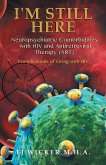HIV/AIDS is one of the major health challenges that have faced mankind in our lifetime. The first case of the disease was identified in 1981 in the USA. The formal introduction of potent antiretroviral drugs (ARVs) in 1996 was a turning point for people living with HIV/AIDS (PLWHA) with access to advanced health care systems in developed countries. Although ARVs did not provide cure and presented new challenges with respect to side effects and drug resistance, they dramatically reduced mortality and morbidity, improved quality of life and changed perception of HIV/AIDS from a plague to a manageable chronic illness. With issues of drug patents and cost surrounding ARVs, it proved an uphill task to introduce them in developing countries where they are needed the most. At the beginning of this millennium, multilateral concerted efforts resulted in the introduction of ARVs in developing countries. Has the introduction of ARVs in these countries been a success or failure? The author presents the case of Kagera regional care and treatment programme in Tanzania to answer this question. The answer should especially be useful to policy-makers, health workers and PLWHA.
Bitte wählen Sie Ihr Anliegen aus.
Rechnungen
Retourenschein anfordern
Bestellstatus
Storno








